УВАГА!!! Орієнтовний графік підвищення кваліфікації наукових та науково-педагогічних працівників в наукових установах Національної академії аграрних наук України на 2024 рік
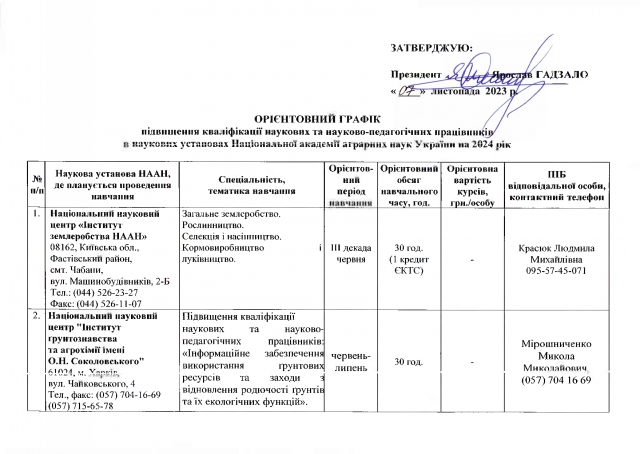
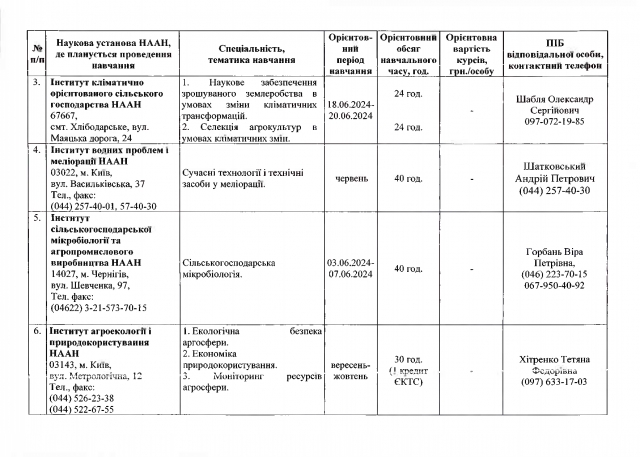
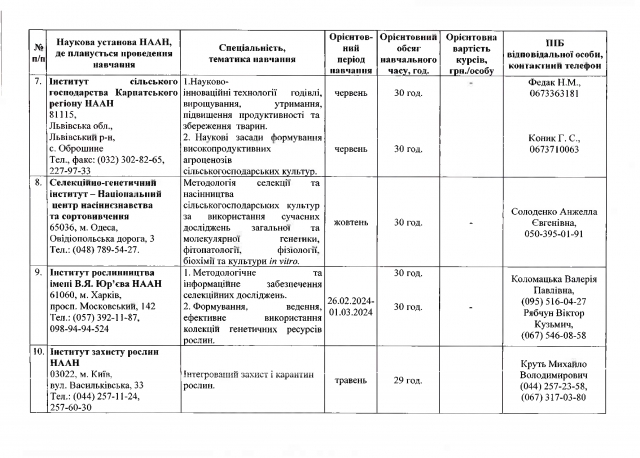
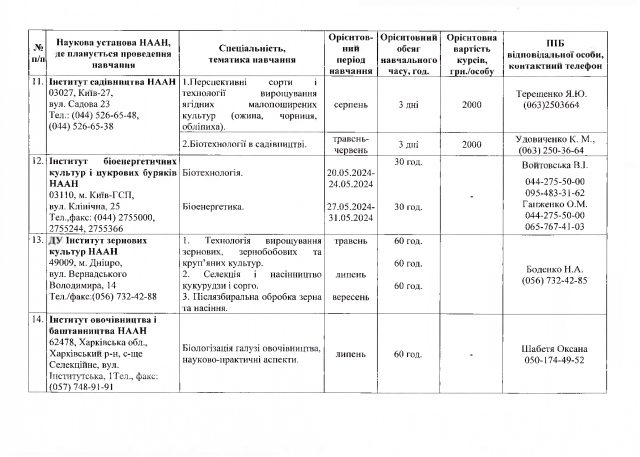
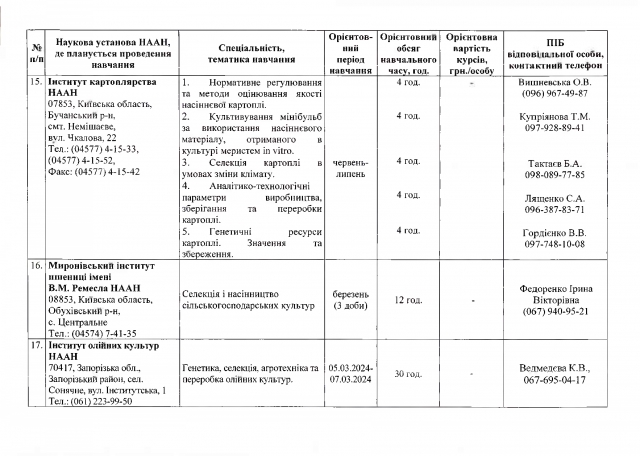
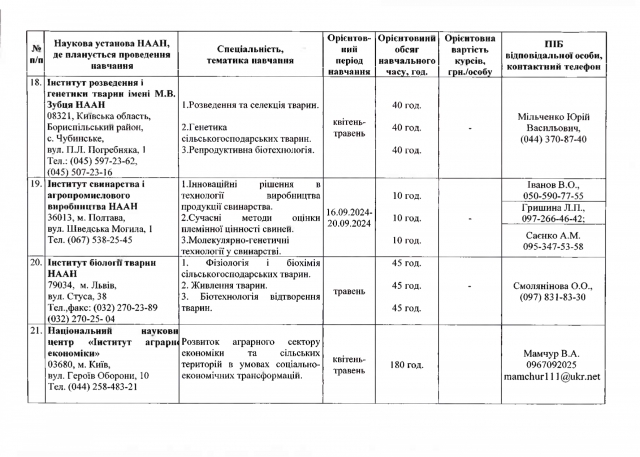
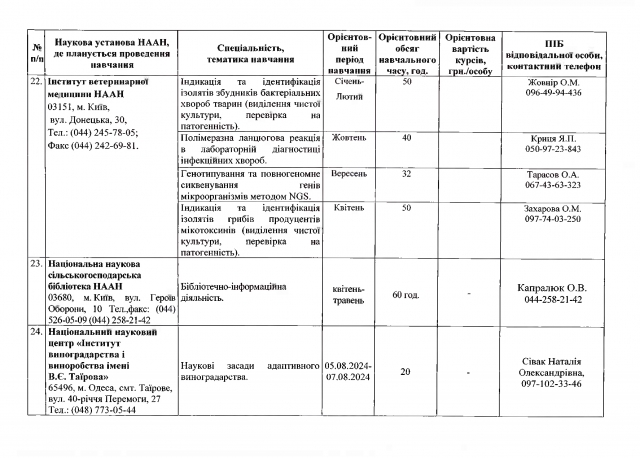
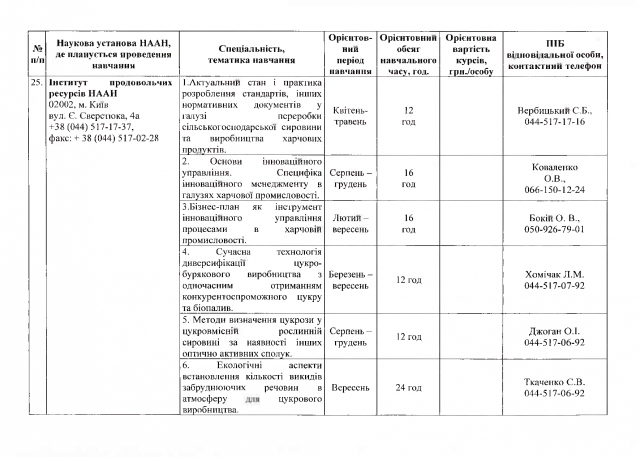
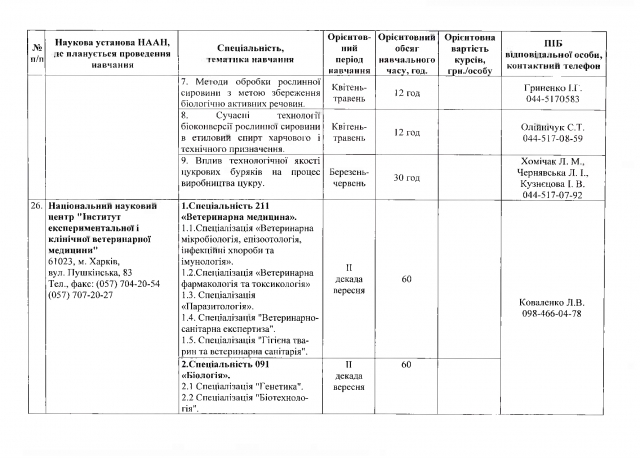
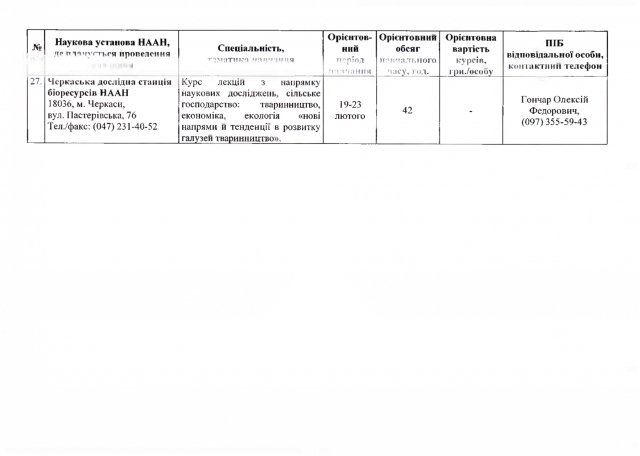
Детальніше за посиланням: sites/default/files/u402/spisok_pidvishchen.pdf
Реєстрації на курси підвищення кваліфікації відбувається централізовано від факультету офіційним листом.
Для реєстрації на будь-який із зазначених курсів необхідно надіслати електронний лист з наступною інформацією:
- Тема: Хочу зареєструватися на курси підвищення кваліфікації;
- E-mail: [email protected];
- назва інституту, що проводить підвищення кваліфікації;
- тематика курсів підвищення кваліфікації (вказана в графіку);
- ПІП учасника курсів;
- факультет, кафедра;
- електронна адреса;
- номер телефону.
